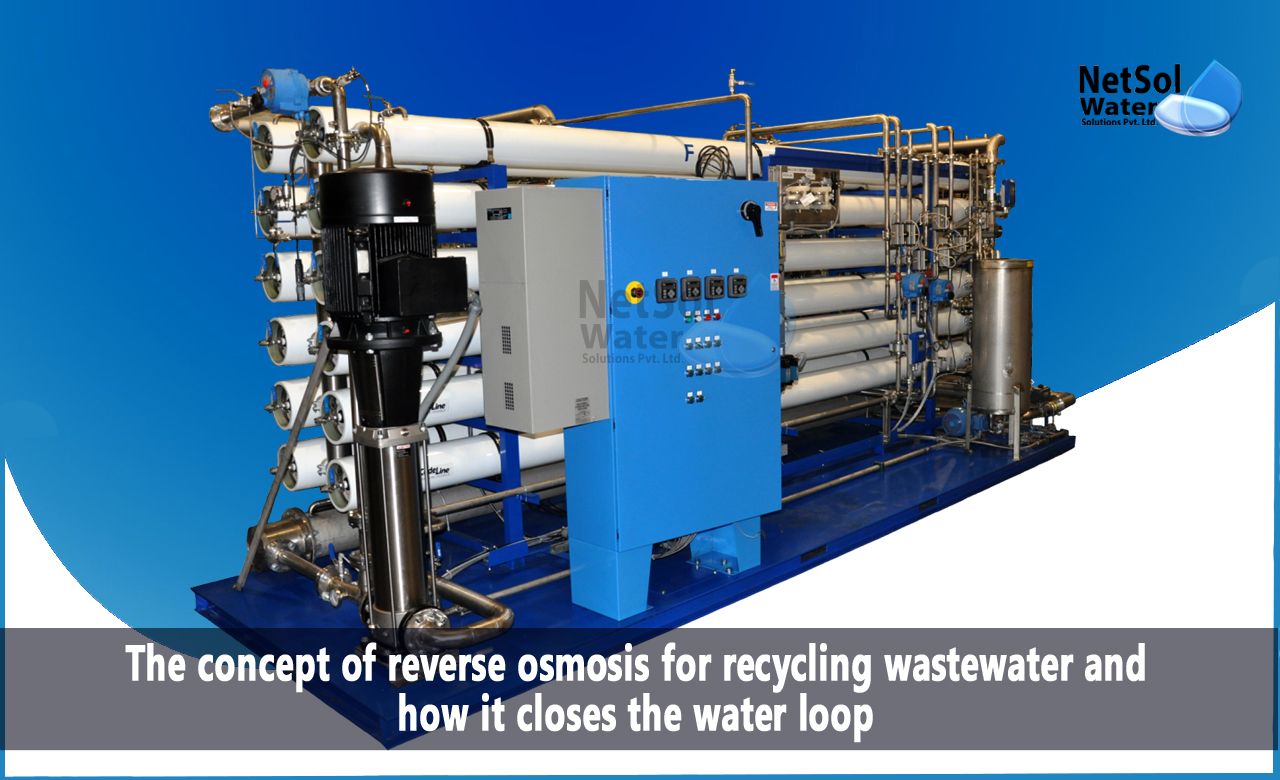What is the concept of reverse osmosis for recycling wastewater?
Water scarcity is a pressing global issue, and one of the most effective ways to combat it is by implementing sustainable water management practices. One such practice is the recycling of wastewater through reverse osmosis, a sophisticated technology that allows for the purification and reuse of water. In this blog, we will explore the concept of reverse osmosis for recycling wastewater and discuss how it plays a vital role in closing the water loop, promoting water conservation, and ensuring a sustainable future.
Understanding Reverse Osmosis:
Reverse osmosis (RO) is a water purification process that utilizes a semi-permeable membrane to separate impurities from water. In the case of recycling wastewater, RO plays a crucial role in removing contaminants such as dissolved salts, organic matter, and microorganisms. The process works by applying pressure to force water molecules through the membrane while leaving behind larger molecules and impurities. The result is clean, purified water ready for reuse.
Benefits of Reverse Osmosis for Wastewater Recycling:
1. Water Conservation: By recycling wastewater through reverse osmosis, we can significantly reduce the demand for fresh water resources. Instead of solely relying on freshwater supplies, treated wastewater can be repurposed for various non-potable uses such as irrigation, industrial processes, and even replenishing natural ecosystems.
2. Enhanced Water Quality: Reverse osmosis is highly effective in removing a wide range of contaminants, including salts, heavy metals, and chemicals. This ensures that the recycled water meets stringent quality standards, making it safe for various applications. Moreover, by reducing the discharge of pollutants into natural water bodies, reverse osmosis helps protect the environment and maintain ecological balance.
3. Economic Efficiency: Implementing reverse osmosis for wastewater recycling offers economic benefits by reducing the need for expensive freshwater sources and minimizing wastewater treatment costs. Industries, municipalities, and agricultural sectors can benefit from lower water bills and reduced expenses associated with water acquisition and disposal.
4. Climate Resilience: As the world faces the challenges of climate change and uncertain weather patterns, recycling wastewater through reverse osmosis provides a reliable alternative water source. By diversifying water supplies, communities and industries can become more resilient to droughts, water shortages, and other climate-related risks.
Challenges and Considerations:
While reverse osmosis is a proven technology for wastewater recycling, it does come with certain challenges and considerations:
1. Energy Consumption: The process of reverse osmosis requires a significant amount of energy to operate the pumps and maintain the pressure needed to push water through the membrane. To ensure sustainability, it is crucial to explore energy-efficient designs and renewable energy sources to power these systems.
2. Membrane Fouling: Over time, the semi-permeable membranes used in reverse osmosis can become fouled or clogged by impurities and particulate matter. Regular maintenance and cleaning of the membranes are essential to ensure optimal performance and extend their lifespan.
3. Monitoring and Quality Control: To guarantee the safety and quality of recycled water, continuous monitoring and quality control measures should be in place. This includes regular testing for pathogens, chemicals, and other contaminants to meet regulatory standards and protect public health.
Conclusion:
Reverse osmosis for recycling wastewater is a powerful solution that allows us to close the water loop and address water scarcity effectively. By harnessing this technology, we can conserve precious freshwater resources, enhance water quality, and build resilient communities. However, it is crucial to address the challenges associated with energy consumption, membrane fouling, and quality control to ensure the long-term success and sustainability of wastewater recycling through reverse osmosis. Embracing these innovative approaches will pave the way for a water-secure future and a more sustainable planet for generations to come.
Netsol Water is Greater Noida-based leading water & wastewater treatment plant manufacturer. We are industry's most demanding company based on client review and work quality. We are known as best commercial RO plant manufacturers, industrial RO plant manufacturer, sewage treatment plant manufacturer, Water Softener Plant Manufacturers and effluent treatment plant manufacturers. Apart from this 24x7 customer support is our USP. Call on +91-9650608473, or write us at enquiry@netsolwater.com for any support, inquiry or product-purchase related query.



